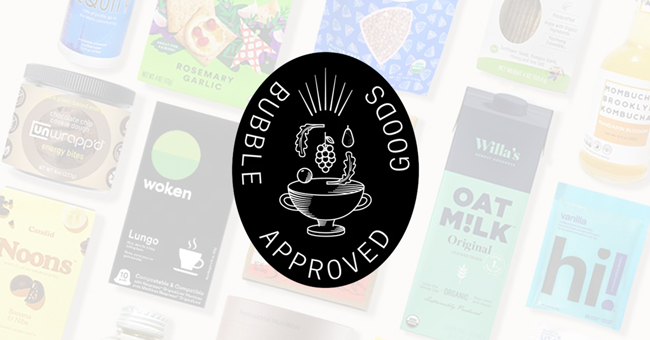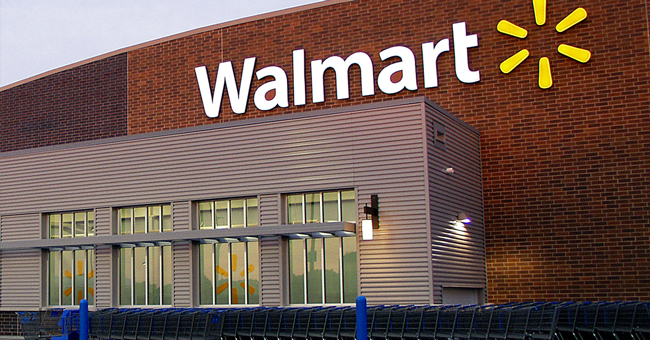Bubble Hires Savraj Singh as CTO, Preps New Platform Launch
Health food ecommerce retailer BUBBLE Goods announced this week that it has named Savraj Singh, former CTO of Daily Harvest, as chief technology officer, responsible for leading the company’s engineering team and digital platforms.
Founded by Jessica Young, also a former employee of plant-based meal delivery company Daily Harvest, BUBBLE is an online retailer specializing in better-for-you food and beverages. Partner brands set their own prices and BUBBLE takes a 35% cut of all sales. The platform is currently preparing expansion plans that will allow it to host more than four times the current number of brands and over 6,000 SKUs.
Speaking to BevNET today, Young said the company launched shortly before the pandemic began last year and was not prepared for the sudden spike in online sales in March 2020. The increased traffic has led to a large waitlist of over 1,000 brands hoping to sell products on BUBBLE, which Young hopes to begin onboarding in the coming weeks with the launch of a revised platform.
“Our name got passed around everywhere in the food community, so we are gearing up now with Savraj on board and we’re moving at lightspeed,” Young said. “I’m proud to be working with him again. At Daily Harvest, he built a lot into our warehousing and timing and subscription, and then he also put out the iOS Android app for the Daily Harvest platform. So, call us crazy, but if we can do it for one complex frozen food company, let’s up and do it again.”
Targeting high end, health conscious consumers, Young said BUBBLE aims to be a discovery platform for new brands online in a similar way to how Erewhon operates for retail grocery. Notably, the company will stock CBD-infused products, providing a platform for an emerging, high-growth food and beverage category and also seeks to highlight products from BIPOC and AAPI-owned companies.
According to Young, BUBBLE will be expanding its engineering and growth teams over the next few months. However, the most pressing directive for the company is to work through its waitlist of brands, which it will do by converting its submission process and brand portal to a self-service interface. In addition to making BUBBLE more user friendly for brands, Singh will also work on revamping the consumer-facing web page.
“I see a huge opportunity for growth and I love building systems that serve large markets,” Singh said in a press release. “It’s a great mission — if we are successful, we’re helping more people access clean food and we’re empowering the brands that serve this market.”
Beyond the technical side of the business, Young said BUBBLE is also preparing to increase its marketing spend. Though the company’s online newsletter has over 200,000 subscribers, BUBBLE is hoping to vastly expand its consumer base this year.
“People want to grow, they want to eat better, and brands want to grow their business,” she said. “And that’s what we aim to do in the background; Just make that whole process really, really easy and simple.”
Walmart Ordered to Pay $115M for Stealing Startup Tech
Walmart was ordered to pay $115 million to Texas-based food tech startup Zest Labs after a jury in Arkansas ruled that the retailer was guilty of stealing its shelf-freshness technology.
According to a report in Law360, the 10-day trial ended Friday when 11 jurors found that Walmart Inc. had used Zest Lab’s trade secret-protected system for prolonging grocery freshness without permission. Zest was awarded $60 million in damages for the theft, $50 million in exemplary damages for the “theft being willful and malicious,” and $5 million because Walmart broke a 2015 non-disclosure agreement it signed during a demonstration of Zest’s technology.
Zest Labs is a subsidiary of Ecoark Holdings Inc.
According to the original court complaint, filed in 2018, Zest claims it paid for pilot runs of its tech at several Walmart stores in 2017, but Walmart turned down a deal and instead built its own shelf-management system based on the demo called Eden, which was found to have integrated Zest’s software. Eden was projected to save Walmart more than $15 billion over the next 10 years, Law360 wrote.
“The damages awarded were strongly supported by the evidence,” Ecoark CEO Randy May said in a statement to Law360. “The jury verdict also allows us to file motions seeking attorneys’ fees and costs.”
A Walmart spokesman said the company plans to “file post-trial motions.” May told Law360 Ecoark will also file an appeal of several pre-trial rulings “to make sure that Walmart is held fully accountable for its actions.”
7-Eleven Opens Evolution Store in Texas
The latest addition to 7-Eleven’s series of experiential ‘Evolution’ stores has opened in Prosper, Texas, featuring tacos on handmade tortillas from Laredo Taco Company, frozen margaritas on tap, a wine cellar and beer collar, fresh-baked croissants, espresso, craft soda and cigars, among other specialized premium offerings.
Evolution stores feature restaurant concepts and are unique to their location, with specialized local offerings and a constantly changing menu and product mix that is driven by consumer feedback and shopping behavior.
Last year, 7-Eleven opened Evolution Stores in New York City, Washington, D.C., San Diego and Dallas. The convenience retailer has also opened two other locations in North Texas so far this year.
Class Action Alleges Whole Foods Sparkling Water Misleads Consumers
A class action lawsuit is accusing Whole Foods Market of deceiving consumers into believing its private label sparkling waters contain actual juice.
According to the complaint, filed by Kevin Kelly this month in the U.S. District Court for the Southern District of New York, the labels of Whole Foods’ Lemon Raspberry Italian Sparkling Mineral Water are “false, deceptive and misleading” because the 1 Liter glass bottle-packaged drink “lacks an appreciable amount of these ingredients,” despite using images of fruit on its labels. The suit cites New York law, which requires food and beverage products to disclose whether it contains the actual ingredients featured on the label.
The ingredients list on the product show the drink contains organic natural flavors. But citing “flavor expert” Bob Holmes, the suit states “If you were getting all the flavor depth of the lemon [or raspberry] itself, the label would likely read ‘lemon juice’ or ‘lemon oil,’ not ‘natural lemon flavor.’”
The class action would represent consumers in New York, Delaware, Maine, Ohio, Utah, Vermont, Virginia and Wyoming. The suit alleges violations of New York General Business Law, fraud, breach of warranty, negligent misrepresentation and unjust enrichment and calls for monetary damages to be paid.

